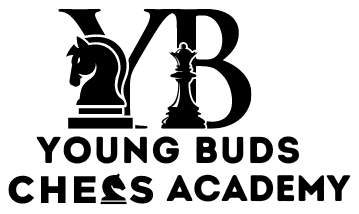Chess is more than just a board game; it’s a timeless activity that has captivated minds for centuries. For kids, chess offers a unique blend of fun, challenge, and intellectual growth. Whether your child is a beginner or an aspiring grandmaster, chess can be a transformative experience. Here’s why chess is the ultimate game for kids and how it can shape their future.
A Mental Workout Like No Other
Chess is often described as a gym for the brain. Every move requires kids to think critically, plan ahead, and anticipate their opponent’s strategy. This mental exercise strengthens cognitive abilities, including memory, problem-solving, and logical reasoning. Studies, such as those conducted by the University of Memphis, have shown that children who play chess regularly improve their IQ scores and perform better in subjects like math and reading.
For kids, chess is a playful way to develop these skills without feeling like they’re studying. They’re too busy plotting their next move to realize they’re sharpening their minds. As they progress, they learn to evaluate multiple possibilities, weigh risks, and make decisions under pressure—skills that are invaluable in academics and life.
Building Confidence and Resilience
Chess teaches kids that success comes from effort and learning from mistakes. Every game, win or lose, is a lesson. A child who loses a match learns to analyze their errors, adapt their strategy, and try again. This process builds resilience, teaching kids that setbacks are opportunities for growth.
Winning a game, especially after a tough match, boosts a child’s confidence. They realize that their hard work and strategic thinking paid off. Over time, this sense of accomplishment spills over into other areas of life, from tackling difficult homework to standing up to challenges in sports or social situations.
Enhancing Focus and Discipline
In today’s world of constant distractions, focus is a rare skill. Chess demands undivided attention. A single lapse in concentration can cost a game, so kids learn to tune out distractions and stay engaged. This ability to focus translates directly to the classroom, where sustained attention is crucial for learning.
Chess also instills discipline. To improve, kids must practice regularly, study strategies, and be patient. They learn that progress takes time and effort, a lesson that helps them develop a strong work ethic. Parents often notice that kids who play chess become more organized and committed to their goals.
Fostering Social Skills and Sportsmanship
While chess is a one-on-one game, it’s also a social activity. Kids who join chess clubs or compete in tournaments meet peers who share their interests. These interactions help shy children come out of their shells and teach all kids how to communicate, collaborate, and compete respectfully.
Chess also emphasizes sportsmanship. Players shake hands before and after a match, regardless of the outcome. Kids learn to win graciously and lose with dignity, skills that are essential for healthy relationships. These experiences prepare children for teamwork and leadership roles in school and beyond.
A Game for All Ages and Backgrounds
One of chess’s greatest strengths is its accessibility. All you need is a board and pieces, which are affordable or even available online for free. Chess transcends age, culture, and language barriers, making it a universal game that kids can enjoy with friends, siblings, or grandparents.
For kids, this inclusivity is empowering. They can compete on equal footing with older players, proving that skill and strategy matter more than age or experience. This levels the playing field and gives every child a chance to shine.
Lifelong Benefits
The skills kids gain from chess don’t fade with time. Strategic thinking, problem-solving, and resilience are qualities that serve them through school, college, and their careers. Many successful professionals, from entrepreneurs to scientists, credit chess with shaping their ability to think critically and stay calm under pressure.
Chess also fosters a love for learning. Kids who enjoy the challenge of mastering chess often become curious, lifelong learners. They’re more likely to embrace new challenges and seek out opportunities for growth.
Getting Started with Chess
If you’re wondering how to introduce chess to your child, start simple. Begin with the basics: how the pieces move and the goal of checkmate. Use fun, interactive tools like online chess apps or kid-friendly chess books. Many schools offer chess clubs, or you can find local tournaments where kids can play and learn.
Encourage your child to enjoy the process rather than focus on winning. Celebrate their efforts and progress, whether it’s mastering a new opening or solving a tricky puzzle. With time, they’ll discover the joy of chess and reap its many rewards.
Chess is more than a game—it’s a gift that keeps giving. By introducing your child to chess, you’re equipping them with tools for success in school, relationships, and life. So, set up a board, make your first move, and watch your child’s potential unfold.
